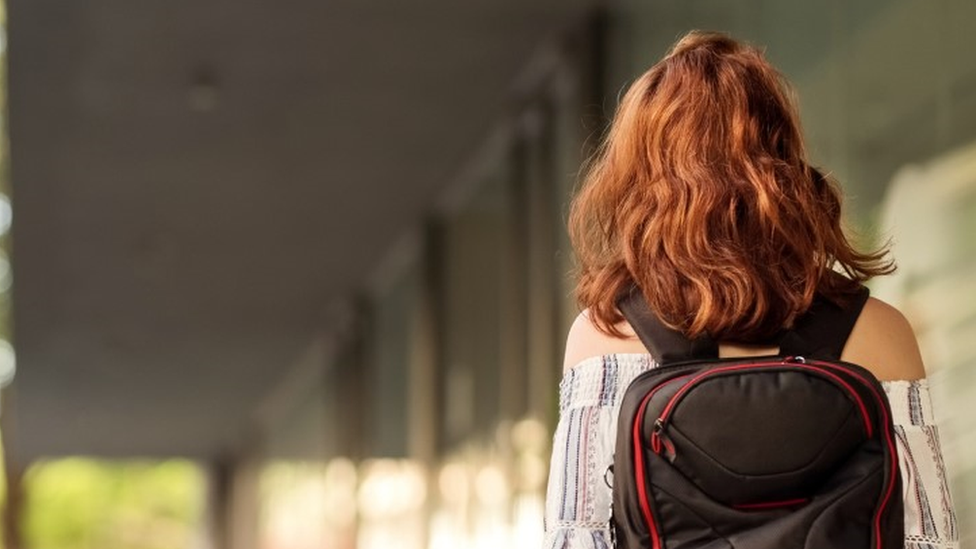Antisemitism prominent in UK now - Holocaust survivor
- Published
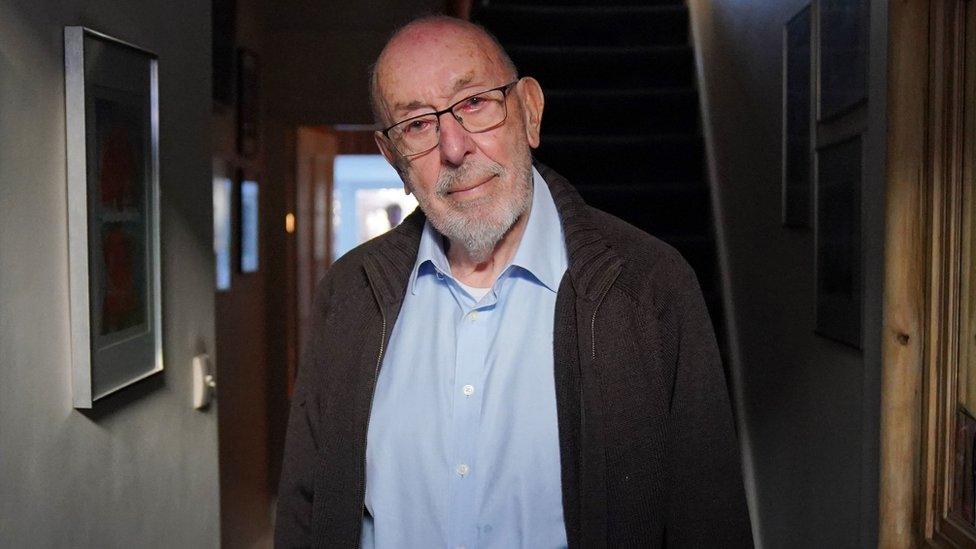
John Dobai, 89, of Kew, west London, says antisemitism is as prominent in modern Britain as it has ever been
A Holocaust survivor has warned Britons to be vigilant against antisemitism on Holocaust Memorial Day.
John Dobai, 89, of Kew, west London, lived through World War Two as a child in Nazi-occupied Budapest, Hungary.
In the past year, he says he has seen antisemitism rise in his neighbourhood, having lived in the area for more than 60 years.
Every 27 January, Holocaust Memorial Day remembers the genocide of six million Jews during the war.
Mr Dobai said antisemitism was more prominent in modern Britain than it had ever been, in his experience.
"In the last 12 to 18 months, we had graffiti on benches along the towpath saying, 'Holocaust: six million lies' and similar graffiti on walls and benches in the neighbourhood.
Mr Dobai, who has lived in Britain since 1948 when he was 14, has given more than 180 talks about his experiences to schools and universities as part of the Holocaust Educational Trust.
His parents, who were of Jewish descent, feared the rise of Nazism in Hungary in the 1930s and converted to Catholicism.
In 1944, Germany invaded Hungary, quickly introduced harsh antisemitic policies and Mr Dobai's father was sent to a forced labour camp.
All Jewish people in Budapest were forced to live in ghettos, wear yellow stars of David on their clothes and could not go to school.
As the Soviets neared the country, the Nazis and Hungarian fascists commenced a brutal campaign of killings against the 60,000 Jews living in the "international ghetto" of safehouses.
Mr Dobai's grandparents were two of 45,000 Jewish people who were massacred by gunshot and drowning in the Danube river, and two aunts and a cousin, who was just 17, were also killed.
He and his parents were saved when the Soviets took control of the city before the killings were complete.
'Speak up'
After emigrating to Britain in 1948, Mr Dobai finished school, attended Durham University and raised two children with his wife Joan, who died last year.
He said: "In my talks, I conclude by calling on the audience to become witnesses and, if they see examples of racial discrimination, not to be silent. To deny any racial slur - whether it's against people of colour or other belief systems - and to speak up," he added.
"I want to show that racial or colour discrimination can lead to severe discord within society."
Karen Pollock, chief executive of the Holocaust Educational Trust, said this year's Holocaust Memorial Day also marks the 78th anniversary of the liberation of the former Nazi concentration and death camp, Auschwitz-Birkenau.
She said: "We also pay tribute to the incredible survivors, many of whom still share their testimony day in and day out to ensure that future generations never forget the horrors of the past."

Follow BBC London on Facebook, external, Twitter , externaland Instagram, external. Send your story ideas to hellobbclondon@bbc.co.uk, external
Related topics
- Published21 January
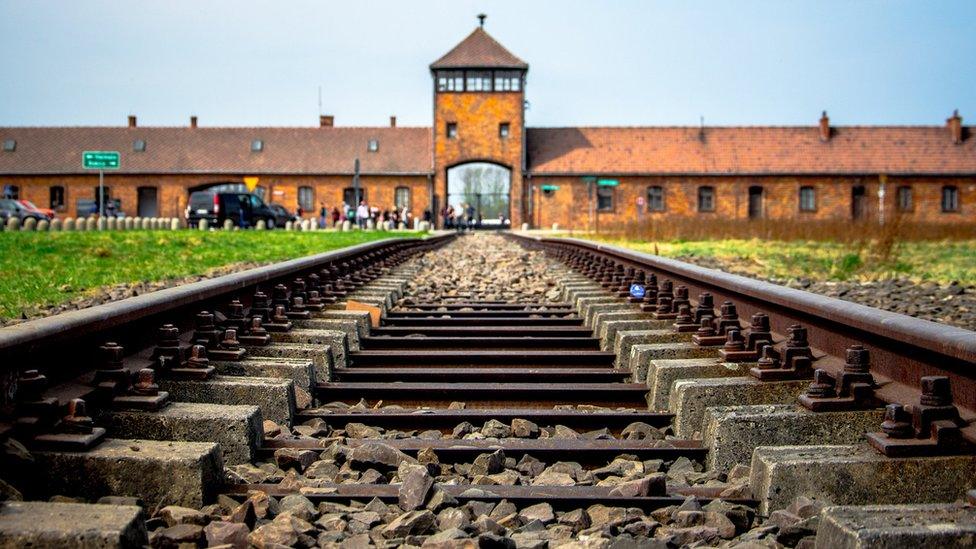
- Published20 January 2023
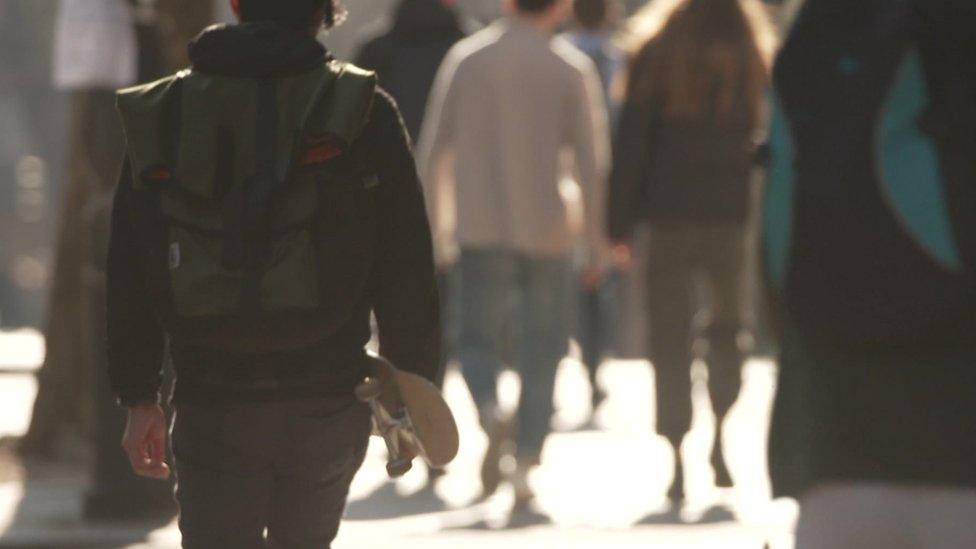
- Attribution
- Published18 January 2023
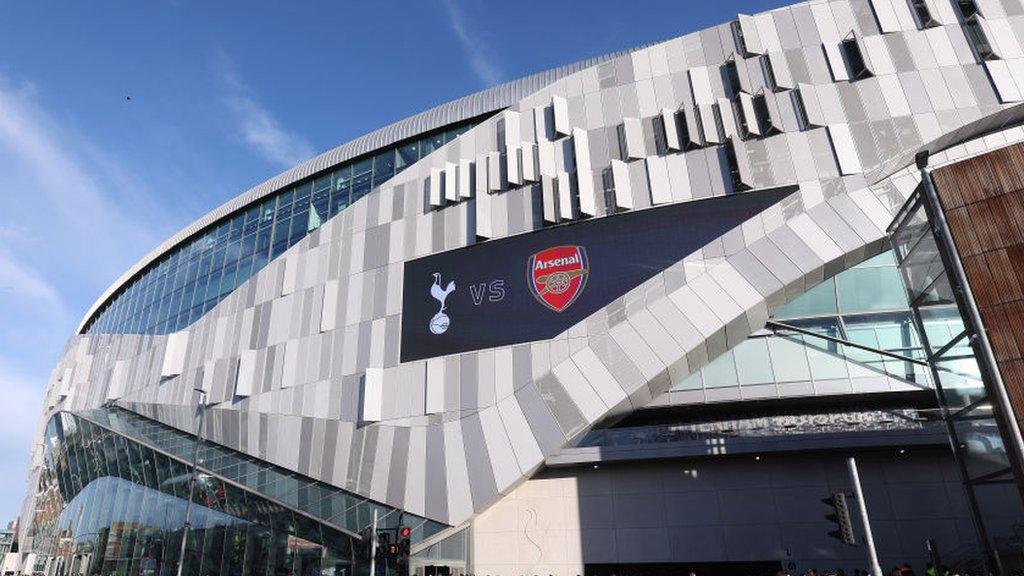
- Published12 January 2023
